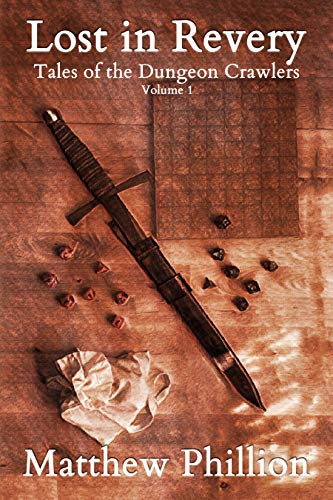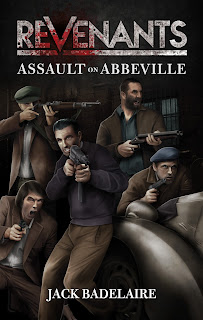Now that we've gotten that no doubt controversial post title out of the way - yes,
according to this article on The Passive Voice Blog, a recent study on how Americans use their leisure time showed that in the last fifteen years, the amount of time we spend in leisure reading has dropped about 30 percent.
Now, before you run off and claim this is a sign of the fall of Western civilization, feel free to
head over to the Bureau of Labor Statistics and take a look at the Time Use Survey data. Unless there's a more select breakdown of this data, their categories are pretty broad, and if I may say so, kind of antiquated. They refer to "computer use", but don't seem to indicate if that also includes mobile devices like smartphones and tablets. They also list "socializing and communicating", but I'm not sure if that includes communicating digitally via messaging or other social media. Further, they refer to "watching TV", but as there are so many people these days who almost exclusively stream their TV content via a computer, what if I am watching television via my laptop? Or I'm watching YouTube or Twitch, but on my television?
The crux of the worry here, for this blog post at least, is that people are reading less. And I think the above paragraph might shed a little light on why. Although claims have been made that we've been reading less since the 1980s, I would wager the decline has been more rapid in the last 10-15 years, and for obvious reasons. People these days simply have more ways in which to spend their leisure time, and although I don't know if people have more or less leisure time these days, We all have only so many hours in the day, period. Looking back at the 1980s as the starting point for this decline, we have the arrival of cable television and computer video gaming as two major time sinks. Cable is especially important when you look at that time use survey and see that by far, "watching TV" is still considered the largest leisure activity. Once the average person's TV content went from a handful of channels to dozens, including channels that showed theatrical movies, there was a lot more content for the TV viewer to consume. Also consider that this would have been a boom time for cassette tapes, VHS tapes, and then as time went on, CDs and DVDs. "Home entertainment" exploded in the '80s and '90s, even if you set aside home computing and console gaming, which you really can't.
But what about the books? Someone on the Internet told me that Men stopped reading because [insert awkward and sexist bullshit here]. Well, it is true that a lot of "Men's Fiction" dried up during this time period, but I believe it had less to do with the lack of testosterone in the Publishing World, and more to do with a lack of profit, both for the authors and for the publishers. Most of the serial fiction writing was done on a write-for-hire basis, without any royalty structure, which meant you got one paycheck for your novel, regardless of how good or bad it was. This, along with rapid turnaround times for getting books out the door, and the steady merge-merge-merge of smaller houses being bought up by larger ones, and little imprints being abandoned because they weren't profitable enough, caused a lot of venues for "Men's fiction" to simply dry up. Why should a major publishing house pump out skinny little dimestore novels when it could put out a doorstopper hardcover, then sell the same book six months to a year later as a mass market paperback?
This article about veteran novelist David Morrell is pretty telling in this regard. His iconic character, John Rambo, first came to live in a novel where (spoiler alert) he's killed off at the end. But Morrell was lucky enough to sell the rights to the novel as a movie deal, and in that film, FIRST BLOOD, Rambo doesn't die in the end. In fact, he goes on to make multiple blockbuster movies, including one coming out this very month. Even the author himself notices that he has a moment of disconnect when he sees his character in its screen persona, so far removed from that character he penned decades ago. Morrell lived through this transformation in the publishing business, where the question stopped being whether it was a good book that would sell, into just how
marketable is the book - how far can you carry it into possible TV or film options. What about streaming venues? Video games? A book is no longer just a good story, it is precious
intellectual property that can be branded and milked for every possible drop of profit.
And to circle back to advancements in media for a moment, while traditional publishing houses might have failed not only their authors but their readers, leaving their leisure time to be consumed by TV and video game entertainment, now multimedia entertainment means anyone carrying a smartphone has in their pocket access to whatever form of entertainment they desire - from books, to music, to movies and television, to video games and instructional videos, newspapers, magazine articles, interpersonal and social media communication channels, and much more.
We have access to more information - reference and entertainment - right now in our pockets than anyone before us in the history of the world. It is only natural that we make use of that access, and such use eats into time that, in decades past, was used to read a novel. And you know what? That's okay. I have always been an avid reader, and I would never tell anyone to
not read for pleasure, but there are so many other venues for entertainment these days, and there's nothing wrong with partaking in them, because at the end of the day, if you gain enjoyment out of doing it, that's what's most important.
Now, does not reading mean we are negatively impacting our vocabulary, our own literacy, our very imagination? Maybe yes, maybe no. I know a lot of early Gen-Xers and Boomers who bemoan that "kids these days" are illiterate and can't write a proper sentence or spelling...and then you see these people post on Facebook, and in my mind, their arguments become invalid. If someone wants to better their vocabulary or educate themselves, the online and digital resources available to them now make the resources available to me when I was growing up pale in comparison. I regularly turn to YouTube or some other online resource for information on a wide variety of topics, and these digital resources can provide information in a way that no written text ever could.
So at the end of the day, yes, people might be reading less, but does that mean they are learning less? Are they using their imaginations less? Are we simply shifting where we are dedicating our time and changing the way we learn? Is watching a YouTube channel on history worse than reading a history book? Is watching a Netflix series about bank robbers worse than reading a series of novels about bank robbers? Is watching someone stream a video game over Twitch really that different from going to an arcade and watching someone play Pac-Man?






















